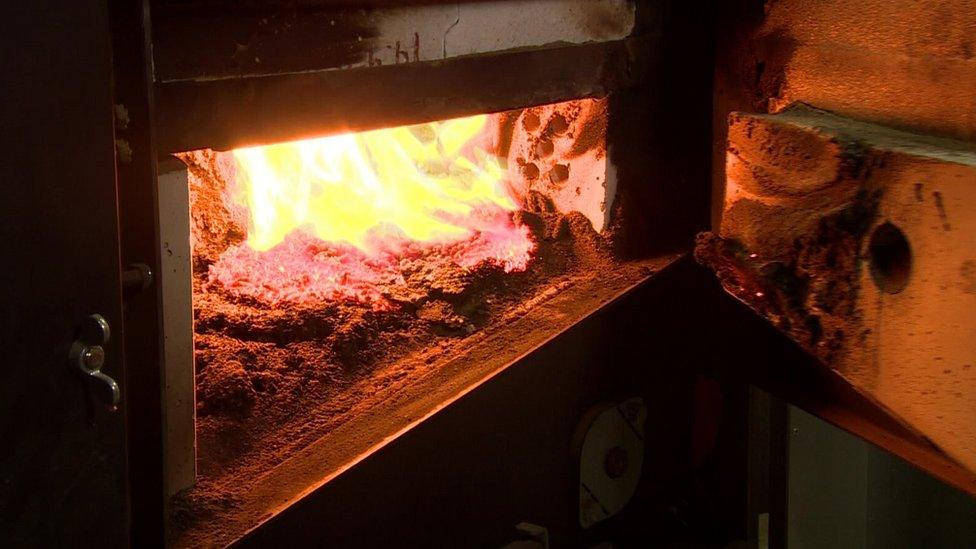RHI official 'never saw lurid leaflets'
- Published

A public inquiry was set up last year to investigate the green energy scheme after costs spiralled
A senior civil servant has said she never saw "lurid" industry leaflets promoting RHI as "burn to earn".
Fiona Hepper was head of the energy division at the Department of Enterprise Trade and Investment, which ran the scheme.
She said the promotional material produced by the biomass industry and circulated at promotional events had never been brought to her attention.
She said if they had been they would likely have "triggered questions" and a possible "quick review".
It has already heard the biomass industry quickly worked out the lucrative nature of the scheme and promoted it to customers as "burn to earn" and "cash for ash".

Fiona Hepper said she did not see leaflets promoting RHI as "cash for ash"
Inquiry chairman Sir Patrick Coghlin suggested that the "lurid leaflets" and the clear public knowledge of the money to be made from it "had been completely lost on the department".
Ms Hepper told the inquiry that her officials knew that the subsidy rate was higher than the fuel price.
But they understood that additional "hassle costs" of running a biomass boiler, the technology cost and a promised 12% rate of return on firms' investments meant the tariff rate was justified.
She said it was 2016 before officials realised that it wasn't.

The RHI scheme offered financial incentives to encourage businesses to switch to using renewable fuels to generate heat
Meanwhile, the National Audit Office has published a report on the RHI scheme in Britain.
It said the scheme there did not provide value for money, but cost controls had meant it hadn't resulted in the major budget problems experienced in Northern Ireland.
But the audit office said officials in Britain did not have a reliable estimate for how much they had overpaid applicants there who hadn't complied with the regulations.
- Published20 February 2018

- Published7 November 2017

- Published7 November 2017

- Published23 October 2019
